Bei Mir Bistu Shein / Bei Mir Bist Du Schön (Schoen): selected early recordings, 1937-1938
__________________________
This is page 2 of 2. Go to page 1. – Page 1 features 1937 recordings of the song.
_________________________
1938 recordings
selected 1938 recordings, chronologically:
- Al Bowlly with an unidentified studio orchestra — recorded on Tuesday, 4 January 1938; issued on HMV BD-493 (UK), and HMV EA-2087 (Australia)
- Milt Herth Trio — recorded on Friday, 7 January 1938; issued on Decca (US) 1612, b/w “The Big Dipper”
- Greta Keller – recorded on Wednesday, 12 January 1938 in London; issued on (UK) Decca F. 6603
- Adrian Rollini Quintet, vocal: Sonny Schuyler – recorded on Tuesday, 18 January 1938; issued on Decca (US) 1638, c/w “Bill”
- Carroll Gibbons and the Savoy Hotel Orpheans, vocal: George Melachrino — recorded on Sunday, 23 January 1938; issued on Columbia (UK) FB1885, and Columbia (France) DF 2328, and Columbia (Romania) DR 2008
- Al Bowlly with Lew Stone and the Monseigneur Band — aircheck or broadcast transcription recorded on Wednesday, 2 February 1938, according to the Al Bowlly Discography at memorylane.org
- Nilo Menendez and his Orchestra — recorded on Monday, 7 February 1938; issued on Decca (US) 1688, c/w “Bruca Manigua”
- Jack Harris and his Orchestra — issued in February 1938 on HMV B.D.5331, b/w “Once in a While” (HMV BD5000+ discography, pdf) [recording not yet found as of 5 January 2016]
- Billy Cotton and His Band — issued as Rex (UK) 9231-A, b/w “Linger Longer Island,” according to a search of the Rex catalog at 78rpm Record Search; it’s not clear whether “Mar 1938” indicates the recording date, or the date the single was issued
- Ady (Eddie) Rosner et son Orchestre, refrain chanté par le Trio Vocal — recorded at la Salle Pleyel, Paris in April 1938, according to the video provider; issued on Columbia (France) DF 2355
- Judy Garland — recorded on Tuesday, 21 June 1938 for the film Love Finds Andy Hardy (1938), but cut prior to filming; includes special lyrics (lyricist unknown)
- Cora Green with Leon Gross and his Orchestra (credited as “Leon Gross’ Orchestra”) — in the 1938 film Swing!
- Harry Roy & his Orchestra — Odeon (UK) OF 5613, 1938(?)
- Henry Jacques & his Correct Tempo Dance Orchestra — issued in 1938 on HMV B.D. 5336 (HMV BD5000+ discography, pdf)
- Léo Marjane accompagnée par Wal-berg et son Orchestre — recorded on Thursday, 5 May at Studio Pathe – 79 avenue de la Grande Armee, XVIIe arr. Paris; issued in 1938 on Disque Gramophone K-8113 as the B-side of “Je vous ai souri”
- Jean Peyronnin, A. Tedeschi et leur célèbre Orchestre Musette; refrain chanté par Jan Lambert — recorded in Paris, May 1938; issued on Idéal n° 13.597
- Tomas & ses Merry Boys — recorded in Paris in 1938; issued on Odeon (France) 279.441, matrix# KI 8515
- Irmgaard Österwall med Orkester — Swedish lyric version recorded on Tuesday, 12 April 1938; issued as Scala 147a, b/w “Vieni… vieni…”
- Zarah Leander med Einar Groth’s Orkester — Swedish lyric version recorded on Thursday, 21 April 1938; issued in 1938 on Odeon (Sweden) D 2967 (matrix SA 255 956), b/w “Budapest” — Swedish lyric by Tage Tall
- Sten Aller (Lasse Dahlquist) with Cameo-Orkestern — Swedish lyric version recorded in Stockholm, Sweden on Monday, 3 October 1938
- Orkiestra “Syrena Record”, directed by Henryk Wars, vocal: Mieczysław Fogg; issued in 1938; this is a Polish lyric version titled “Ty masz dla mnie coś,” with words by Andrzej Włast
- Rita Drangsholt — According to the video provider, this Norwegian lyric version was recorded in 1938 or ’39 and issued on Rex Records, a UK-based company
___________________________
Bei Mir Bistu Shein (Yiddish: בייַ מיר ביסט דו שיין, “To Me You’re Beautiful”) is a popular Yiddish song composed by Jacob Jacobs (lyricist) and Sholom Secunda (composer) for a Yiddish musical, I Would If I Could (in Yiddish, Men Ken Lebn Nor Men Lost Nisht, “[Y]ou could live, but they won’t let you”) in 1932 that closed after one season. The score for the song transcribed the Yiddish title as Bay mir bistu sheyn.[1] — from the Wikipedia article, adapted
Al Bowlly — The recording in the following video is identified by lindyhoppers, the Youtube provider, as the Tuesday, 4 January 1938 recording by Bowlly, made with an unknown studio orchestra and issued on HMV BD-493 (UK), and HMV EA-2087 (Australia). If that date is correct, then archive.org, which has two relatively poor copies of the same recording, may have misidentified the orchestra as Lew Stone and the Monseigneur Band, an orchestra with which Bowlly was evidently performing when an aircheck or broadcast transcription was recorded on 2 February 1938, according to the Al Bowlly Discography at the (now defunct) site memorylane.org.
.
Milt Herth Trio — recorded on Friday, 7 January 1938; issued on Decca (US) 1612, b/w “The Big Dipper”
- Milt Herth — organ
- Willie “The Lion” Smith — piano
- William “O’Neil” Spencer — drums (brushes only) and vocal
.
Greta Keller – recorded on Wednesday, 12 January 1938 in London; issued on (UK) Decca F. 6603
.
Adrian Rollini Quintet, vocal: Sonny Schuyler – recorded on Tuesday, 18 January 1938; issued on Decca (US) 1638, c/w “Bill”
personnel, according to the video provider:
Bobby Hackett – trumpet
Frank Victor – guitar
Harry Clark – string bass
Buddy Rich – drums
Adrian Rollini – vibraphone
Sonny Schuyler (aka Sunny Skylar) – vocal
.
Carroll Gibbons and the Savoy Hotel Orpheans, vocal: George Melachrino — recorded on Sunday, 23 January 1938 — issued on Columbia (UK) FB 1885, Columbia (France) DF 2328, and Columbia (Romania) DR 2008 — The flip side of the UK single, FB 1885, is “It’s a Long, Long, Way to Your Heart”
relevant discography, from 78 rpm Community Resources page:
.
Nilo Menendez and his Orchestra — recorded on Monday, 7 February 1938; issued on Decca (US) 1688, c/w “Bruca Manigua”
.
Jack Harris and his Orchestra — issued in February 1938 on HMV B.D.5331, b/w “Once in a While” [recording not yet included as of 2 January 2016]
relevant discography, from 78 rpm community:
- HMV BD5000+ (pdf)
________________
Billy Cotton and His Band — issued as Rex (UK) 9231-A, b/w “Linger Longer Island,” according to a search of the Rex catalog at 78rpm Record Search; it’s not clear whether “Mar 1938” indicates the recording date, or the date the single was issued
.
Ady (Eddie) Rosner et son Orchestre, refrain chanté par le Trio Vocal — recorded at la Salle Pleyel, Paris in April 1938, according to the video provider; issued on Columbia (France) DF 2355
.
Judy Garland — recorded on 21 June 1938 for the film Love Finds Andy Hardy (1938), but cut prior to filming; includes special lyrics (lyricist unknown) — I was informed of this recording by Kevin D. F. Highnight, in a comment dated Mar 31, 2014 @ 18:40:44.
recording to be replaced
_____________________
Cora Green with Leon Gross and his Orchestra (credited as “Leon Gross’ Orchestra”) — in the 1938 film Swing!
.
(above) Harry Roy and his Band – on board “The Alcantara,” April 1938 (source)
Harry Roy & his Orchestra — Odeon (UK) OF 5613, 1938(?) — I think the vocal is by Harry Roy
.
Henry Jacques & his Correct Tempo Dance Orchestra — issued in 1938 on HMV B.D. 5336
relevant discography, from 78 rpm community:
- HMV BD5000+ (pdf)
___________________
French lyric versions
Léo Marjane accompagnée par Wal-berg et son Orchestre — recorded on 5 May at Studio Pathe – 79 avenue de la Grande Armee, XVIIe arr. Paris; issued in 1938 on Disque Gramophone K-8113 as the B-side of “Je vous ai souri”
personnel, adapted from the list given by provider of the first video below:
Leo Marjane (vo), Alex Renard (tp), Stéphane Grappelli (v), Michael Warlop (v), Wal-Berg or Pierre Spiers (p), Django Reinhardt (g), Roger Grasset (b), Jerry Mando (dm), plus other musicians
.
Jean Peyronnin, A. Tedeschi et leur célèbre Orchestre Musette; refrain chanté par Jan Lambert — recorded in Paris, May 1938; issued on Idéal n° 13.597 (A. Tedeschi = Antoine Tedeschi)
.
Tomas & ses Merry Boys, vocal: Constantin — recorded in Paris in 1938; issued on Odeon (France) 279.441, matrix# KI 8515
__________________
Swedish lyric
Irmgaard Österwall, Zarah Leander, and Sten Aller each recorded the song with a Swedish lyric, under the same title as in the recording by the Andrews Sisters, “Bei mir bist du schön.” However, unlike the Andrews sisters they each use German (or Swedish approximating German), rather than Yiddish, pronunciation of the word “schön,” within the title phrase.
Irmgaard Österwall med Orkester — Swedish lyric version recorded on Tuesday, 12 April 1938; issued as Scala 147a, b/w “Vieni… vieni…” — B-side recorded by Kvartetten synkopen with Arne Hülphers Orkester, on 20 April 1938
.
Zarah Leander med Einar Groth’s Orkester — Swedish lyric version recorded on 21 April 1938 on Odeon (Sweden) D 2967 (matrix SA 255 956), b/w “Budapest” — Swedish lyric by Tage Tall
Zarah Leander discography:
.
Sten Aller (Lasse Dahlquist) with Cameo-Orkestern — Swedish lyric version recorded in Stockholm, Sweden on Monday, 3 October 1938
_____________
Polish lyric version “Ty masz dla mnie coś,” words by Andrzej Włast
tekst piosenki:
- tekstowo.pl
- IQQIQQI post (YouTube)
Orkiestra “Syrena Record”, directed by Henryk Wars, vocal: Mieczysław Fogg — 1938
______________
Norwegian lyric version
Rita Drangsholt — According to the video provider, this version was recorded in 1938 or ’39 and issued on Rex Records, a UK-based company.
_______________________
* personnel, from the discography “Django Reinhardt: discographie commentée” at the site Médiathèque:
Léo Marjane (voix), Wal-Berg [Woldemar Rosenberg] (arrangements et direction), Alex Renard (trompette) + une trompette, trombone, trois ou quatre saxophones, Stéphane Grappelly, Michel Warlop + 1 tiers (violons), Wal-Berg ou Pierre Spiers (piano), Django Reinhardt (guitare), Roger “Toto” Grasset (contrebasse), Jerry Mengo (batterie)
Pages: 1 2



















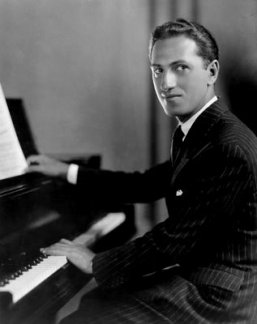


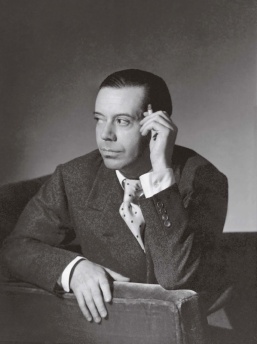





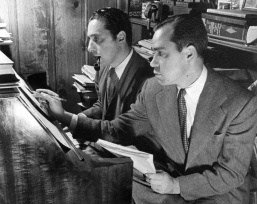
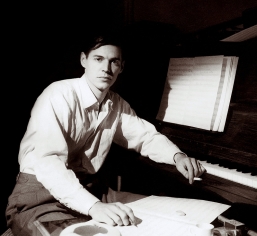

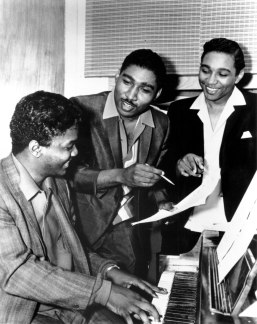

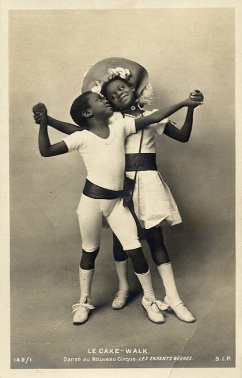
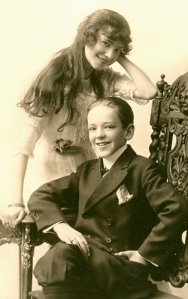

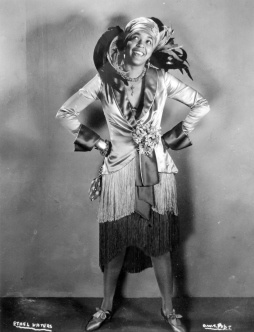

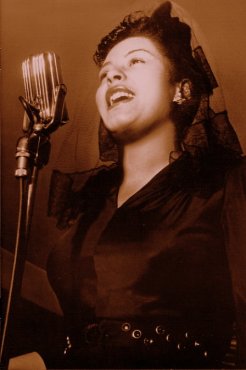




Jan 01, 2012 @ 16:46:58
Thanks for sharing this. I received info on it in email a few days ago and couldn’t get to it via email. I searched the site and found it. I love it.
Thanks
LikeLiked by 1 person
Jan 01, 2012 @ 21:19:15
This response has been significantly revised. The latest edit was on 23 January 2014.
____________________________
RCohen, You’re welcome. Perhaps I included too much explanation regarding the titles and lyrics. This was primarily done out of curiosity. I’d occasionally noticed variant spellings in the titles of different versions, and wanted to know why this was so. Reasons for spelling and pronunciation variation among recorded versions include the following:
LikeLike
Feb 18, 2012 @ 21:55:43
I thoroughly enjoyed all the information, and listening to the various versions. Thanks for all your research!
LikeLiked by 1 person
Jan 03, 2013 @ 08:59:30
A lovely presentation of a delightful story and record samplings of an old chestnut.
LikeLiked by 1 person
Jan 03, 2013 @ 22:21:24
Thanks, Mike. I may be doing some more 1930s songs soon. Snooping around a bit lately.
LikeLike
Feb 08, 2013 @ 02:27:46
Great article!
To answer your question about “bist du” being interrogative: in German, the verb is mostly fixed at the second position. To illustrate with the verb “gehen” (to go), if you say “Ich gehe heute am Strand” (I’m going to the beach today), but want to emphasize the timeframe, you’d say “Heute gehe ich am Strand” (today I’m going to the beach). So the word order reads perfectly natural in German.
LikeLiked by 1 person
Feb 08, 2013 @ 03:14:27
Nathan,
Thanks very much for the brief lesson in German grammar! I’ve been a bit lazy about following up on that question.
LikeLike
Jul 02, 2013 @ 05:23:54
Looking for a copy of piano music for Bei Mir Bitz du Shoen 4 part harmony, women. Could you help me?
Lillian
LikeLiked by 1 person
Jul 02, 2013 @ 21:56:30
Hi Lillian,
Wish I could help, but I was unable to find the requested item in Google searches. Will certainly notify you if I happen to find one. — doc
LikeLike
Jan 26, 2015 @ 14:21:06
Please contact me if you still need a copy of Bei Mir Bist Du Schon.
LikeLiked by 1 person
Mar 31, 2014 @ 18:40:44
The song was also recorded in June 1938 by Judy Garland for the film, LOVE FINDS ANDY HARDY. Unfortunately it was not included in the film, but the song has been available for years on many Judy Garland collections. It’s quite a unique take on the song – starting very slow and bluesy then taking off in full swing with some parody of the song added to it.
LikeLiked by 1 person
Mar 31, 2014 @ 23:13:31
Kevin,
Thanks. I very much appreciate you’re taking the time and effort to provide this information.
I found the recording in a Russian video library, but I haven’t a good video embedding tool for non-YouTube libraries which WordPress doesn’t provide a shortcode for since the VodPod Firefox tool disappeared a couple of years ago. There’s Gigya. However, my attempts to use it fail to produce functioning players far more often than not. I’ll look for an audio file of the recording when I find some time.
LikeLike
Oct 14, 2014 @ 16:22:35
Kevin,
I’ve added two players containing audio files of the 1938 Judy Garland recording today. Thanks again for your help.
[10 April 2021 note: These audio players are now on page 2 of the feature.]
LikeLike
Apr 04, 2017 @ 09:52:26
WONDERFUL to READ
LikeLiked by 1 person
Apr 04, 2017 @ 22:01:44
Thanks, Björn
LikeLike